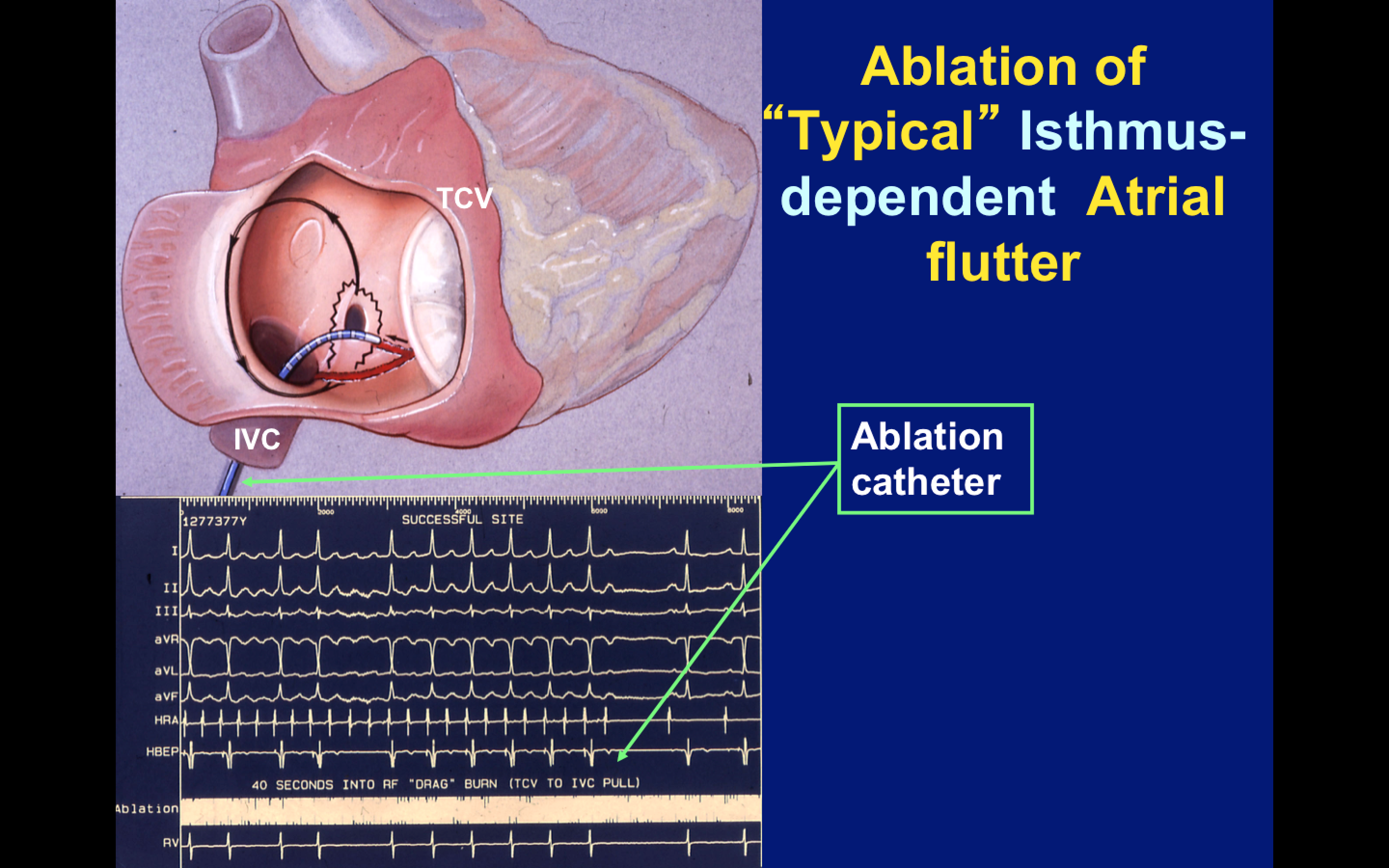
The prognosis for patients with atrial flutter that get ablation treatment is excellent.Your risk of developing atrial flutter can be reduced by avoiding drinking excessive alcohol, eating a healthy diet, and appropriate care of any medical condition.Medical procedures to treat and manage flutter may include Valsalva procedures, cardioversion, cardiac ablation, and medication for the prevention of clot formation.Antiarrhythmics, beta-blockers, and anticoagulants are the three general types of drugs used to treat and manage this type of heart disease.Although there are many tests to evaluate atrial flutter, the most common diagnostic test is an electrocardiogram ( ECG/ EKG).Atrial flutter is not the same as a stroke or a heart attack.Risks for getting this heart condition include a number of medical problems and poor personal habits such as an unhealthy eating habits and drinking too much alcohol.Certain triggers may cause the arrhythmia however, the triggers result in a reentry loop that causes the heart's electrical system to produce rapid, regular atrial contractions.Flutter produces regular tachycardia while fibrillation produces irregular tachycardia. Atrial flutter and atrial fibrillation ( AFib) are closely related.Atrial fibrillation lasts for variable periods ranging from intermittent short time periods to constant rapid heartbeats.This type of arrhythmia can be dangerous because complications can easily develop.It produces feelings like near- fainting, rapid heartbeats ( palpitations), mild shortness of breath, and fatigue.Atrial flutter is a condition where the atria of the heart rapidly and regularly beat due to an anomaly in the heart's electrical system that usually results in a tachycardia.


Read his story.Atrial flutter is a health condition (arrhythmia) where the atria of the heart as an electrical problem (a re-entry loop) that causes the atria to beat at a rapid rate of about 242 - 360 beats per minute (bpm).

inflammation of the heart (such as myocarditis).People with atrial flutter often have an underlying heart or circulatory condition such as: If you're experiencing any of these symptoms, especially if you already have a heart condition, speak to your GP. Although people with atrial flutter often have no symptoms, symptoms can include:


 0 kommentar(er)
0 kommentar(er)
